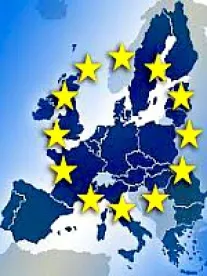On June 24, 2014, the EU Council published a series of regulations that impose or amend sanctions against Russia, Libya, Syria, and Central African Republic. Those regulations include, in particular, Council Regulation 692/2014, which prohibits the import into the EU of goods originating in Crimea or Sevastopol following the annexation of those two regions by Russia.
Due to the deteriorating situation in eastern Ukraine, the EU may decide to impose additional sanctions against Russia during the upcoming meetings of the European Council scheduled for June 26-27, 2014.
Restrictions relating to Goods Originating in Crimea and Sevastopol
Regulation 692/2014 prohibits parties falling under the jurisdiction of the EU sanctions from importing into the EU goods originating in Crimea and Sevastopol and from providing financing, financial assistance, insurance, and reinsurance relating to such goods. The Regulation separately prohibits circumvention of those restrictions. Goods originating in Crimea or Sevastopol are defined as goods which are wholly obtained in Crimea or in Sevastopol or which have undergone their last substantial transformation there, in accordance with the European Community CustomsCode (EC Regulation No. 2913/92).
The above restrictions are subject to a grandfathering clause and an exemption. Specifically, they will not apply to the execution until September 26, 2014, of (i) trade contracts concluded before June 25, 2014 or (ii) ancillary contracts necessary for the execution of such trade contracts that are concluded and executed on or prior to September 26, 2014 – provided in both cases that the parties seeking to perform such contracts notify the competent Member State authorities at least 10 working days in advance. The above restrictions also will not apply to goods originating in Crimea or Sevastopol that have been made available to the Ukrainian authorities for examination and are entitled to preferential treatment in accordance with (a) the EU’s Generalized Scheme of Preferences (GSP) and EU Regulation 374/2014 on the reduction or elimination of customs duties on goods originating in Ukraine or (b) the EU-Ukraine Association Agreement.
Sanctions Against Libya
In parallel to adopting the restrictions on imports of goods from Crimea or Sevastopol, the EU amended its sanctions against Libya. In particular, by Regulation 689/2014, the EU removed from the list of designated parties two Libyan entities: (i) the Libyan Holding Company for development and Investment and (ii) Dalia Advisory Limited, a subsidiary of the Libyan Investment Authority.
In addition, Regulation 690/2014 implements the UN Security Council’s Resolution 2146 (2014) targeting illicit exports of crude oil from Libya and imposing sanctions on vessels involved in such exports. The UN resolution followed the seizure of the “Morning Glory,” a North Korean vessel, which reportedly took over and loaded crude oil belonging to the Libyan National Oil Company (NOC) and several U.S. companies at the rebel-held port of Sidra in eastern Libya. The vessel, reportedly carrying an estimated $20 million in cargo, was seized by the U.S. Navy in international waters off the coast of Cyprus. It was operated by an Egypt-based company that was allowed to temporarily use the North Korean flag.
Pursuant to Resolution 2146 (2014), when the Libyan government becomes aware of vessels illegally exporting crude from its ports, it is expected to inform the UN Security Council’s Committee administering sanctions against Libya (the “UN Committee”), and the Committee may designate the vessels as subject to the restrictions set out in the UN resolution.
Further to those measures, Regulation 690/2014 prohibits parties falling under its jurisdiction from loading, transporting or discharging crude oil from Libya on designated vessels flying the flag of a Member State unless that support is authorised by a competent Member State authority after consultation with the Libyan Government. The designated vessels will be listed in an annex to the Regulation; thus far no designated vessels have been added to the annex.
Regulation 690/2014 also prohibits parties falling under EU jurisdiction from:
- accepting or providing access to EU ports to designated vessels, unless doing so is necessary for an inspection, in the case of an emergency, or where the vessel is returning to Libya;
- providing bunkering or ship supply services, or any other servicing of vessels (including the provision of fuel or supplies) to designated vessels (that support may be authorized by the competent Member State authority if it is necessary for humanitarian or safety purposes, or where the vessel is returning to Libya);
- entering into financial transactions with respect to crude oil aboard designated vessels (including the sale of such crude oil), unless the transactions relate to the payment of port fees in the exempted cases mentioned under (1).
Sanctions against Syria and the Central African Republic
Finally, the EU Council adopted Council Regulation 693/2014 which imposes asset freezing restrictions on 12 additional members of the Syrian government in view of the continued brutal repression and violation of human rights in Syria. It further adopted Council Regulation691/2014, which imposes asset freezing restrictions on three individuals engaging in or providing support for acts that undermine the peace, stability or security of the Central African Republic (CAR).
The asset freezing restrictions imposed on the designated individuals consist of two standard aspects: (i) all funds and “economic resources” belonging to, owned, held, or controlled by the newly designated individuals must be frozen (“economic resources” include “assets ofevery kind, whether tangible or intangible, movable or immovable, which are not funds, but which may be used to obtain funds, goods or services”) and (ii) the prohibition to make available funds or “economic resources,” directly or indirectly, to or for the benefit of the listedindividuals. As a practical matter, those measures restrict most business activities by EU parties with the designated individuals, and may also restrict dealings with entities that are owned or controlled by those individuals.









 />i
/>i

